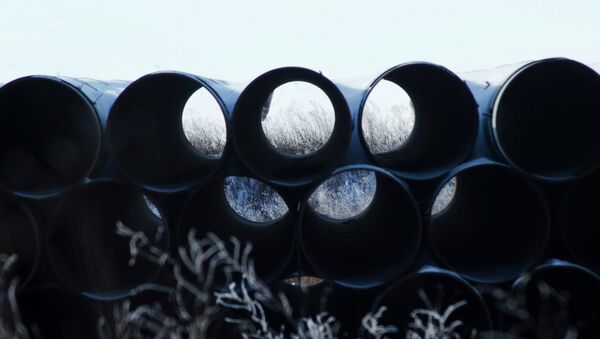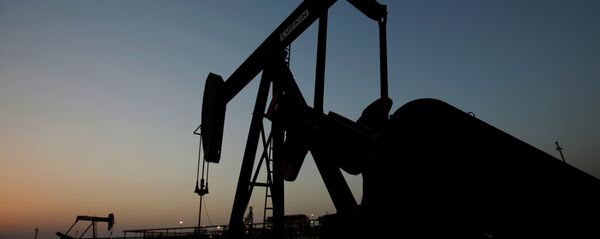Kristian Rouz — The shale oil boom in North Dakota's Bakken oil field continues to set new records, rendering US crude prices lower, which, in the face of increasing US energy exports, is poised to weigh on international oil prices as well.
In this light, Saudi Arabia has announced a new round of output cuts aimed at supporting the prices — which are, in the near-term, still expected to remain at that country's fiscal breakeven, estimated at roughly $70/bbl.
According to official figures, oil production in Bakken alone rose to the record level of 1.3 mln bpd last month, bottlenecking the majority of rail and pipeline routes.
Meanwhile, the Trump administration is bracing for a battle in court to unlock the construction of the final leg of the Keystone XL pipeline, which would bring North Dakota's massive oil supply to Gulf Coast refineries and oil-shipping terminals in Louisiana and Texas.
Bakken oil is currently trading at a $20/bbl discount, shipping at as low as $13.50/bbl last week — compared to WTI benchmark in New York trading at $61.07/bbl.
READ MORE: US Unable to Reduce Iranian Oil Export to Zero — Rouhani
These figures suggest the main issue facing the US energy sector is the lack of infrastructure — which is seen as a temporary obstacle before the ongoing rise in US production and exports dampens global energy prices, while boosting oil prices in North Dakota itself.
The latter would attract additional investment to the state, allowing to further increase the output and shipping capacity.
"One thing that is abundantly clear, OPEC is in for a shale shocker as US crude production increased to a record 11.6 million barrels per day and will cross the 12 million threshold next year," Stephen Innes of financial services company Oanda said.
The Saudis said they would decrease the oil supply by as much as 500,000 bpd as soon as in December — albeit other OPEC member-states and their allies, such as Russia, have yet to announce their position on the proposed cuts.
This as global crude prices dropped by as much as 20 per cent since last month, easing the concerns of energy security and economic sustainability in countries that rely on oil imports — such as India, China, and Japan.
READ MORE: WATCH Norwegian Frigate Beached After Colliding With Tanker
"This is great news for the externally challenged economies of Asia like Indonesia and the Philippines, India too, and helps also where inflation has been a concern," Robert Carnell of ING Asia said.
However, market participants say the global energy market could see another period of excessive supply of crude oil as soon as next year — with oil bulls looking at Bakken anxiously. If Trump manages to unlock the Keystone in court, the pipeline is expected to go into full commission soon afterwards.
Additionally, the US has commissioned 12 new oil derricks earlier this month, with the total rig count reaching 886 — the highest number since March 2015.
Meanwhile, the global demand for crude oil has been anaemic despite the gradual acceleration in global economic growth — as international trade tensions, Brexit, and high household debt across the developed world have kept the demand for manufactured goods in check.
READ MORE: Trump: Iran Sanctions Waivers Won't Drive Oil Prices Up to $150 Per Barrel
All this might suggest OPEC and its aliens are likely to maintain their grip on the global energy market in the near-term — particularly, as the US oil embargo on Iran gradually goes into effect. However, in the longer run, Trump's ongoing deregulation policies could unleash additional millions of bpd of oil to the global market — sinking prices yet again.




